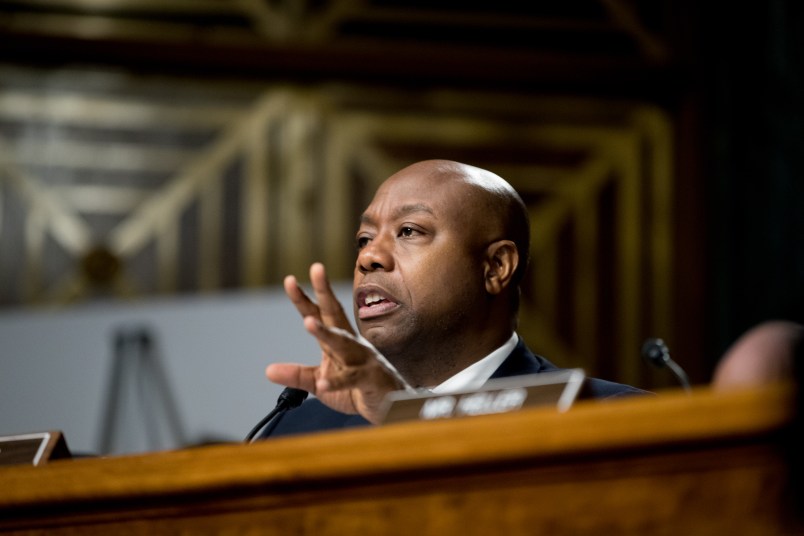On Wednesday morning, two powerful House committees began marking up the bills to repeal the Affordable Care Act despite the fact that the non-partisan Congressional Budget Office (CBO) has not yet crunched the numbers on what the plan would cost or how many people would lose their health insurance if it passes.
The Republican authors of the bills refused to say this week if the number of uninsured Americans would grow or shrink under their proposals. Independent estimates of how many people would lose insurance range between two to four million and tens of millions of people. As for how much the plan would cost the federal government, Republican leaders offered no numbers—only vague assurances that it will be “fiscally responsible.”
House Speaker Paul Ryan (R-WI) told reporters Wednesday that he was not sure when the CBO would release its analysis of the bills, but said he hoped it would be next week, before the bill came to the House floor for a vote. But ahead of that vague release date, rank-and-file Republicans are casting doubt on the agency’s judgement.
“The CBO is consistently inconsistent,” Sen. Tim Scott (R-SC) told TPM. “They can’t predict the actual results of a 10-year window, because life changes so quickly. So I don’t put that much weight on a CBO score.”
Over on the House side, Rep. David Brat (R-VA) laughed when TPM asked about the rush to mark up the bill without knowing its cost or impact. “The CBO, they’ve scored everything wrong for decades,” he said.
Emerging from a closed-door meeting of the Republican caucus, Rep. Glenn Thompson (R-PA) agreed. “To tell you the truth, the CBO, I don’t see where they get it right,” he told TPM. “I don’t know what variables or parameters they use to score things. I don’t have a lot of confidence in the CBO process.”
Asked whose report he would rely on if not that of the non-partisan office, Thompson replied, “Trust me, this bill will be subject to all kinds of alternative analysis.”
Yet, the alternative analyses released so far have not been favorable to the plan.
Standard & Poor’s estimated that 2-4 million people would drop out of the individual insurance market due to rising premium costs, and that another 4-6 million would lose their Medicaid coverage. The Brookings Institution estimates that as many as 15 million people could lose coverage, largely because the repeal of the individual mandate would drive up costs for those who remain insured.
Former Rep. Mick Mulvaney (R-SC), the newly confirmed director of the Office of Management and Budget, promised Wednesday that when the CBO finally releases its score, it will be “really good” or “great.” Others are not so sure, predicting the report will find that the bill would drive up the federal deficit and leave millions uninsured—a result that could “derail” the bill.
Ahead of that potential outcome, Republican lawmakers say that instead of the CBO score, they will rely on their own internal estimates of the plan’s cost and impact on insurance prices.
“[Republican] leadership will put out something on the rate of growth, and they’ll have to back it up with some spreadsheets or whatever,” Brat, a former economics professor, assured TPM.
The CBO did not immediately respond to TPM’s request for comment.
Sen. Chris Van Hollen (D-MD), who sits on the Senate Budget Committee, put out a statement Wednesday blasting Republicans for preemptively criticizing the CBO’s analysis of their bill, saying the tactic was “simply beyond the pale.”
“It is all part of their effort to hide from the American people the true impact of their plan to destroy the Affordable Care Act,” he wrote. “In this era of alternative facts, if Republicans are serious about deficit reduction it is essential that they rely upon the accurate cost assessments of the nonpartisan CBO experts. Republicans should not advance Trumpcare until Congress and the people we represent understand the full scope of its impact.”











“Trust me, this bill will be subject to all kinds of alternative analysis.”
“alternative analysis”
Need we say more?
" And with numbers soo large …Whats a few million poor dead people … either way ? " –
So, I’m guessing you don’t understand partial differential equations and stress/load analysis. And yet you blithely, without question, drive your car across bridges and fly in airplanes.
It’s the facts cafeteria, folks. Where you never have to choose what’s actually good for you.
we want the CBO to use alt-scoring…
instead of calculating the cost of Dr visit and stitches when your kid gets cut just calculate the cost of band-aids…
given that vaccines cause spontaneous abortions and autism they won’t need tetanus shots…
learn how to set your own broken arm… apply splint…
after all Dr Carson leaned brain surgery
lowering costs for your benefit…
offer your own suggestions…